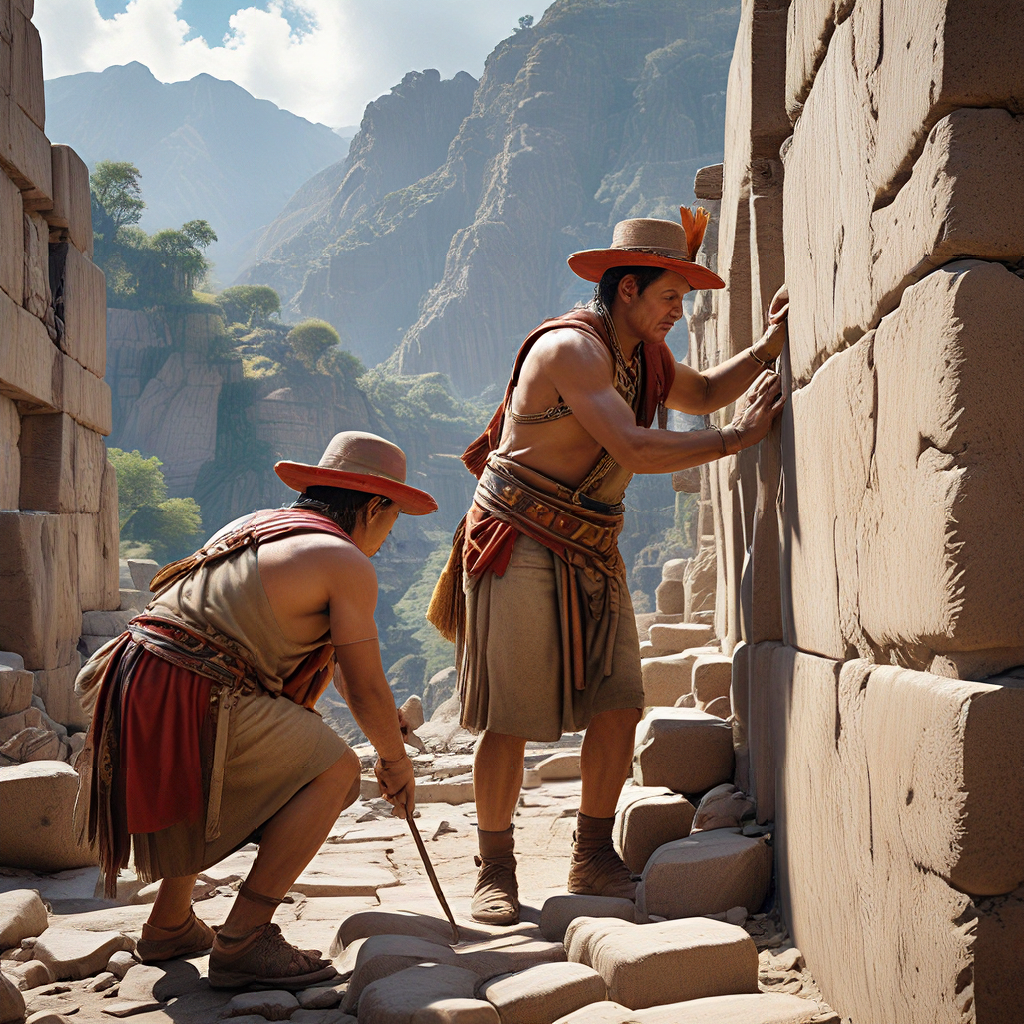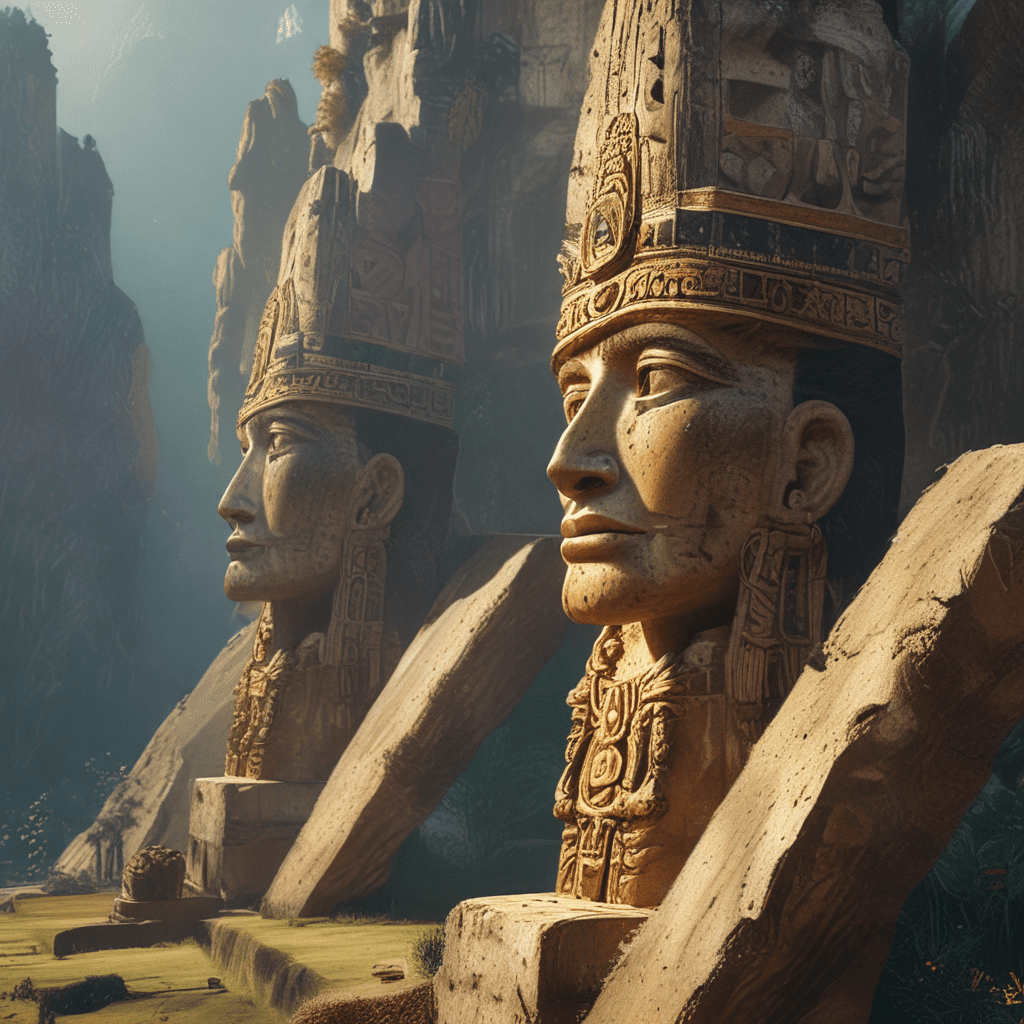The Flood Myths of the Indigenous Peoples: Wisdom from the Ancients
Introduction to Flood Myths
Flood myths are narratives that recount a great deluge, often sent by deities or nature, resulting in the destruction of humanity or a specific civilization. These stories are significant across various cultures as they embody fundamental themes such as morality, survival, and the relationship between humans and nature. Indigenous peoples around the world have rich traditions of flood mythology that reflect their unique cultural identities and historical experiences.
Cultural Context of Indigenous Flood Myths
Oral tradition plays a crucial role in indigenous cultures, serving as a primary means of storytelling and knowledge transmission. Through oral narratives, communities preserve their histories, values, and teachings, ensuring that these insights are passed down through generations. Flood myths often encapsulate common themes and motifs, including:
- The punishment of humanity for moral failings
- The role of a hero or savior figure
- The renewal of life and the importance of rebirth
- The relationship between humans and the natural world
Major Indigenous Flood Myths Across the Americas
Across the Americas, diverse indigenous cultures have developed their own unique flood myths, each reflecting their environment and worldview. In North America, the Navajo and Ojibwe peoples tell stories of great floods that cleanse the Earth and lead to renewal. For instance, the Navajo myth describes how the world was created anew after a flood, while the Ojibwe narrative involves a great flood that serves as a warning against wrongdoing.
In Central America, the Maya and Aztec civilizations also have rich flood narratives. The Maya flood myth speaks of a great flood that was sent by the gods to reset humanity, echoing themes of creation and destruction. The Aztec myth features a similar narrative, where the gods decide to destroy humanity with water due to their disobedience.
South America is home to numerous flood stories as well, such as those from the Inca and various Amazonian tribes. The Inca myth tells of a great flood that wiped out the initial creations of mankind, leading to a new era of human beings who respect the earth. Amazonian tribes often describe floods that reflect their deep connection with the rainforest and its cycles.
The Role of Nature in Indigenous Flood Myths
Indigenous flood myths often interpret natural disasters as spiritual messages, highlighting the profound connection between humans and the environment. Water, in these narratives, symbolizes both destruction and rebirth. The act of flooding is seen not merely as a catastrophe but as a necessary cleansing that allows for new growth and regeneration.
Comparative Analysis of Flood Myths
When examining indigenous flood myths, one can identify both similarities and differences among them. Common themes of moral judgment and the need for renewal recur throughout various myths. However, the specifics of each narrative are deeply influenced by geography and climate:
- Geography: Coastal and riverine cultures may have different flood narratives than those from mountainous regions.
- Climate: The frequency of flooding events can shape the urgency and nature of the myths told by a community.
Moreover, connections can be drawn between indigenous flood myths and global narratives, such as the story of Noah’s Ark, which also deals with themes of divine judgment and salvation through water.
Lessons and Wisdom from Indigenous Flood Myths
The wisdom embedded in indigenous flood myths offers moral and ethical teachings that remain relevant today. Key lessons include:
- Resilience: The ability to recover and rebuild after disaster.
- Humility: Recognizing the power of nature and the importance of living in harmony with it.
- Respect for Nature: Understanding that humans are part of the ecosystem and must protect it.
Archaeological and Historical Evidence of Flooding Events
Archaeological findings often provide evidence of historical flooding events that may correlate with indigenous narratives. Excavations in various regions have uncovered signs of ancient floods, leading researchers to explore their links to the stories told by indigenous peoples. Notable case studies include:
- The Great Flood of the Mississippi River Valley and its impact on Native American cultures.
- Evidence of ancient floods in the Andes and their correlation with Inca flood myths.
Modern Interpretations and Relevance of Flood Myths
Today, contemporary indigenous communities view their flood myths as vital components of their cultural identity. These stories are increasingly integrated into modern environmental activism, reminding people of the lessons learned from the past. The preservation of indigenous knowledge is crucial, particularly in the context of climate change, as these narratives offer insights into sustainable living and environmental stewardship.
Challenges to Indigenous Narratives
Colonization and globalization have profoundly impacted indigenous beliefs and storytelling traditions. Many communities face challenges such as:
- Loss of language, which is essential for conveying cultural narratives.
- Disruption of traditional lifestyles, impacting the transmission of these stories.
- Current efforts to revitalize and preserve indigenous flood myths, including educational programs and cultural initiatives.
Conclusion: Embracing Indigenous Wisdom for the Future
Indigenous flood myths offer invaluable insights into the relationship between humanity and nature. By listening to these ancient voices, we can learn essential lessons about resilience, humility, and respect for the planet. As we confront contemporary environmental challenges, embracing indigenous wisdom can guide us toward a more sustainable and harmonious future.




